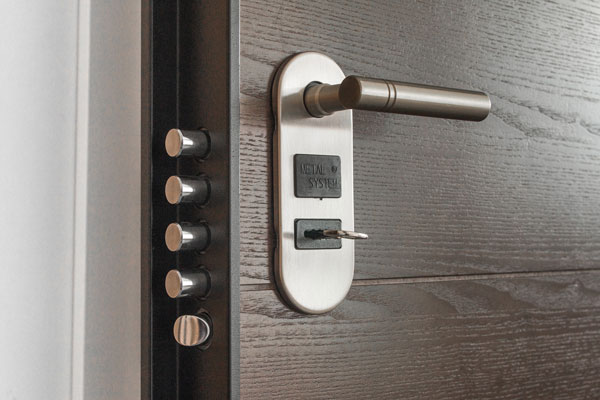8 Easy Security Habits To Teach Your Kids
8 Easy Security Habits To Teach Your Kids

I always thought I was vigilant with the security around my own house. Ironically, that was until I accidentally locked myself out of my own home (ironic because I’m a locksmith). After a quick search, I realised I had left a window unlocked. After easily removing the screen and a quick shuffle of the window it was propped up and I unsuccessfully swan dived through the window landing on the floor. It was not a good look.
Luckily for me, it was just a case of locking myself out that made me aware how easy it is to break into my own home. For others, they aren’t so lucky.
In my experience, most break-ins can be easily avoided with a simple routine around security. For kids, a good security routine can lead to great security habits as they grow up.
Here are my top security habits you can teach your children.
Pick Up Your Toys
Any parent that has tripped, stumbled, or stepped on a toy (Lego is the WORST!) probably has this as a rule. However, you can also use packing up toys as a way to teach kids about security. Packing-up toys can teach children to take responsibility for their possessions. A bike or outside toy can easily be taken by an opportunistic thief.
By having children look after their own possessions, you help develop a sense of responsibility as they get older.
Lock The Door Properly
If your child is old enough, teach them how to lock and unlock a deadbolt. Show them how it works and use it as an opportunity to understand the importance of security and locking the door.
Show them the different locks in your house including windows and your front and back doors. Give them an added sense of responsibility and have them in charge of locking their bedroom windows whenever you leave home.
Show Your Children How To Use An Alarm
Alarms are one of the best burglar deterrents you can get for your home. If you don’t have one, put it as a high priority on your to-do list and get it sorted ASAP!
Show your children how an alarm works. If they are old enough teach your children how to activate and deactivate the alarm. Create a passcode that is easy for your children to remember.
Always create a routine of turning on an alarm when leaving home or are going to bed. Where possible have the kids do this, or at least, have them see you do it over time.
A good habit is to create a little saying before you leave the home “Doors Locked? Windows Locked? Alarm On? Ok, Let’s GO!”. This reinforces good security habits and gets them into the routine of doing some quick security checks before you leave.
Don’t Answer The Phone Or Door Without An Adult
Some parents choose to not let their kids answer the phone or door. However, if you are happy for your kids to answer the phone or door make sure you set up some ground rules, particularly if you aren’t home.
If your child picks up the phone and you are not home, what do they do? They should always take a message and not give out any information. Make sure they get the person’s name and phone number. Your children should never tell the caller their name, phone number or address.
Under no circumstances should they state that mum or dad aren’t home, instead they should say you are busy and can’t come to the phone right now.
If the doorbell rings, younger children should refrain from answering the door. If your children do answer the door, make sure that they speak to the person through the door. They should never open it, particularly if they are home alone.
The same rules should apply when answering the door. Get the visitors details but don’t share any information or state that mum and dad aren’t home. Consider getting a peephole installed so you and the kids can see who you are speaking to on the other side of the door.
If the person does not go away, teach your children to either call a trusted neighbour or, if the situation requires, to call the police.
Teach Your Children How To Respond In An Emergency
What happens when things go wrong, and your aren’t available? Instead of having the kids figure it out themselves teach your kids how to correctly respond in an emergency.
Teach your children how to use the phone. Have a list of emergency numbers near the phone. These numbers can include 000, you and your husbands mobile numbers, a nearby family member and a trusted neighbour.
Practice a safety drill a couple of times and repeat it two or three times during the year so it stays fresh in your children’s mind. This drill can be used in the case of a fire in the house or an intruder.
If the kids are in trouble they should now know what to do and who to contact.
Teach Your Children About Online Security
Technology has now become an everyday thing in our modern lives. Your kids will likely be socially active online so it is a good idea to run them through safe and responsible behaviour when online.
Teach them why online security is important. Children should not share information openly online. Shared information can lead to home burglaries and other problematic situations.
If you are going on holidays, you and your children should not share this online. Consider that all information online is available in one form or another to anyone. Thieves can find and use this information to know when you are not home and when to break in.
And most importantly, kids should not let other people know when they are home alone.
Lead By Example
Kids respond well to repetition and reinforcement. Children will also learn most of their behaviours by watching your everyday habits and behaviours. If this is bad news for you, it’s probably time to change any of your bad habits.
In regards to security, lock all doors and window on a regular basis and set the alarm. This should be done every time you leave home or go to bed.
As mentioned previously, getting kids involved with this routine will set them up with good security habits in the long run. They can set the alarm with you and be in charge of making sure their windows are closed and locked.
Do A Quick Security Check
Developing great habits is an excellent foundation for your kids safety and security. However, if your house is not secure, then no routine can prevent a break in. Every couple of months do a quick check of your property to make sure everything is in order. These checks can include:
Is your alarm working? Is the battery charged and working? Are all sensors working and not impeded in any way?
- Are there locks on all doors and windows?
- Are all main entrances to your house such as front and back door of solid wood or metal construction? Anything that can be kicked down or smashed in is not secure enough to hold back intruders.
- Do you have generic security signs advertising that your home is secure? These should be placed where they can be seen such as the property entrance, mailbox and front door.
- Are there any potential hiding places such as bushes that can be removed or trimmed back? I recommended not have anything near doorways and windows that can potentially hide someone as they break in.
- Is everything of value stored away and not easily seen from the road? This can be your brand new flat screen TV or jewellery you left on the counter. Make sure you close your curtains at night so people can’t see what valuables you have inside.
If you haven’t conducted a security check in the last couple of months, set aside time this week to do it. Ask yourself “If I were a burglar how would I get in?”. Ask your kids this question, their creative little minds might come up with something that you didn’t think of.
I don’t recommend accidentally locking yourself out in order to discover this.
What routine and habits have you taught your kids about security?
 ABOUT NATHAN
ABOUT NATHAN
Nathan Hughes is the founder of LocksmithsInSydney.com. When he is not letting you back into your house at 4am, he is dressed up as Iron Man running around at home with his family.



